
Craig Jones: In His Own Words
Wildlife Photographer and Conservationist
Bio: Craig Jones
One of Britain’s finest wildlife photographers, Craig Jones is also one of the most humble and down-to-earth guys you will ever meet. His photography and stories capture the lives of endangered rainforest animals that we hold so dearly to our hearts: Sumatran orangutans, Sumatran tigers, Sumatran elephants, Siamangs and more. His work has featured in BBC News, BBC Wildlife Magazine and National Geographic magazine. He has also appeared for Nat Geo WILD discussing Sumatra as part of the “Paradise Islands & Photo Ark” Nat Geo series. He has spoken at the UK Green Party Conference about the disastrous effects of palm oil in South East Asia, that he seen with his own eyes.
In this story, Craig uses his own words to bear witness to the awesome love and intelligence of orangutans, and also shares stories of the immense suffering of orangutans and other species within RSPO member palm oil plantations. Craig is an absolute inspiration to photographers, animal lovers and conservationists. It is an honour to showcase his work and stories on Palm Oil Detectives.
His work appears in:



#Wildlife #photographer Craig Jones @CraigJones17 uses his heart and camera to capture the spectacular animals of Asia even in settings of absolute cruelty and #palmoil #deforestation. He tells his story! #Boycott4Wildlife
Tweet
“The most beautiful rainforest in the world is turned into a souless landscape of palm oil within weeks, with brutal efficiency. Anything in its way gets crushed, killed and discarded.” #Wildlife #photographer Craig Jones @CraigJones17 #Boycott4Wildlife
Tweet
“That scream I can still hear now, the tone went through me, the pitch could have broken a glass, it was so high and shocking to hear.“ @CraigJones17 recalls rescuing a mum and baby #orangutan from an @RSPOtweets #palmoil plantation
Tweet
#Wildlife #photographer Craig Jones @CraigJones17 uses his heart and camera to capture spectacular animals of Asia even in settings of absolute cruelty and #palmoil #deforestation he tells his story! #Boycott4Wildlife #Boycottpalmoil
Tweet
“Sustainable palm oil is a con. #Palmoil is all about #wealth and it’s killing us and the planet. So mother nature will have the last laugh. It’s all corruption. #Boycottpalmoil #Boycott4Wildlife” #Wildlife photographer @CraigJones17
Tweet
“I kept hearing from locals that the government fails to protect national parks and #endangered species. The same government hands out #palmoil licences letting these companies play god” #Boycottpalmoil #Boycott4Wildlife @CraigJones17
Tweet
“Those with a vested interest in sustainable #palmoil are linked in some way. How can anyone say sustainable is OK when it is grow in the ashes of the dead wildlife and burnt forests?” #Boycottpalmoil #Boycott4Wildlife” #Wildlife photographer @CraigJones17
Tweet
Nature saved me really. That’s behind everything I do. I’ve seen bad things in life and nature has always been there…
When I see animals in stress or danger, I have learned that I can turn my passion into a positive and use my heart and camera to capture what I see. This is despite shocking scenes I have witnessed in my career, with the many examples of sheer and pointless human cruelty.
Craig jones

Respect and care for wildlife was instilled in me by my late mother
[Pictured] Craig Jones as a boy in his aviary, in the garden of his mother’s home
“My love of wildlife started at a young age. My mum took me to the nearby woods where wildlife was as a small child. My mum taught me about the circle of life and where my food was from. She taught me to always to respect wildlife and listen to the woods, listen to nature and nature will give up her secrets.”

From those early days, I spent so much time being at one with nature, close to and watching, hidden from view on the off chance I would see a certain animal.

[Pictured] Puffins locked in an embrace. Craig Jones Wildlife Photography
I have learned how to get close to wildlife without disturbing animals and their world. In doing so, I can understand the animal better and give them complete respect. I have gained many skills by observing animals and their behaviour. This gives me a private window into their private lives.
The word conservation means many things to many different people

For me, conservation means to simply to care, love and protect wildlife. I use my camera as an extension of myself to capture what I see and express this in my photography, with minimal intervention and great respect for wildlife.
Combining conservation and photography can be very powerful. This can move people to such a degree that change can and does happen!
craig jones
Early on in my career, I learned the power of an image. This moved me, and I was sure this would move viewers too. I try to help all animals with my images. I tell the stories behind the pictures, where and how they live.





The best camera is a person’s heart. This is then reflected through their eyes and the result is the photography
If you want to get into wildlife photography, be honest with yourself and nature when you are behind the camera. Don’t cut corners and always remember you are a guest in the animal’s world.

Watch and learn about wildlife and the species you wish to photograph. Don’t look for the perfect shot, because there isn’t such a thing really.

The perfect shot drives photographers to try and achieve this, often at the cost of the animals’ wellbeing and peace.
Become part of the environment, learn about fieldcraft, ethics and always respect nature. I have a saying, “what you give to nature, you get back” and this often is reflected in my work. Work with your heart on your sleeve and always be honest with nature and yourself with your work.

I love every single creature and species of the natural world. I find everything fascinating. Every individual animal is going about their own lives around us, often unnoticed and in clear view ~ Craig Jones
For my 8th Birthday I was given a book called “Animal World”. On the cover is tiger and to the side is an Orangutan. I’ve still got this book, which is signed inside by my late mum. As a child I was amazed by these animals. Without my knowing, this book started my life-long love and fascination for these two species.

Despite the shocking scenes I have witnessed, I am able to switch from the heart to my head and capture the true essence of the things I have seen
Craig Jones
When I see animals in stress of danger, I am able to turn that passion into a positive and use my heart and camera to photograph what I see.




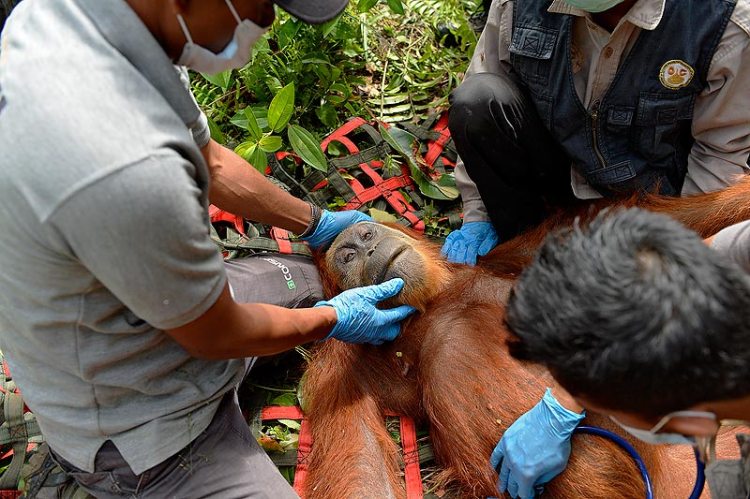
This wasn’t planned, it wasn’t taught, it comes from that true and powerful love for wildlife I had from a small child
I witnessed so much in Sumatra, it has been an emotional roller coaster with so many ups and downs, looking into an orangutan’s eyes and seeing yourself has filled me with so much joy, and at the same time sorrow. I have loved these enduring animals since childhood and now as an adult helping them is a blessing for me.
I try and show not only the beauty of the natural world, but also the suffering. My hope with my own contribution to conservation is to give all wildlife a true and meaningful voice around the world.
Although I had to walk away from these animals, I want my photos to be a visual reminder that these beautiful creatures will never be forgotten. Their plight wasn’t ignored


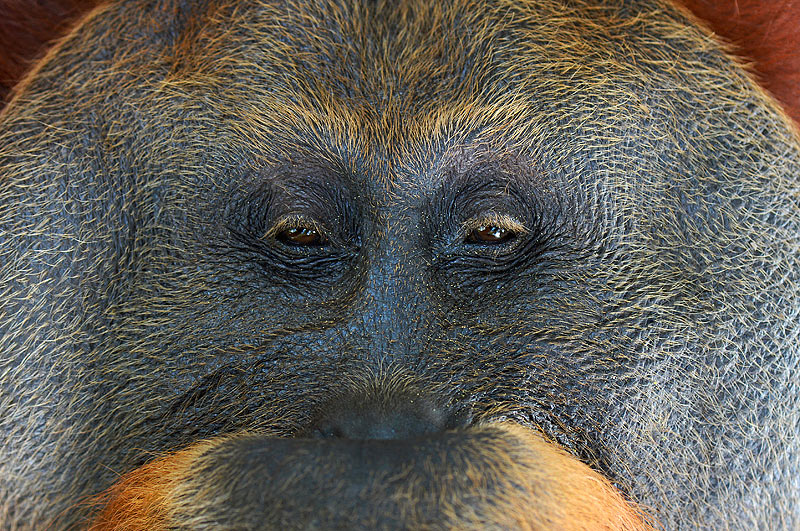
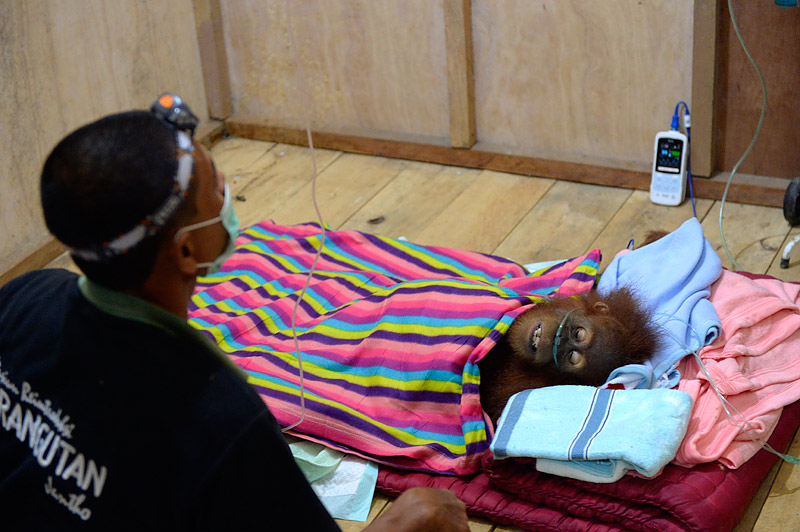

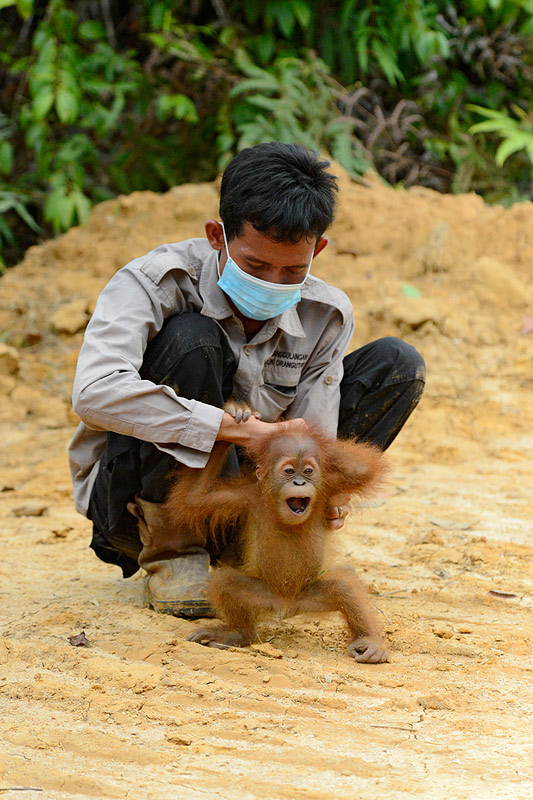
Orangutans are us and we are them in so many ways. Their peaceful mannerisms and intelligence is just remarkable
I feel there is so much we still don’t know about these great apes. For as long as I walk this earth, I will do my best to help them. Along with every other creature we share this planet with, using my camera and my own voice.
Orangutans are us and we are them in so many ways…
I’ve climbed trees in the rainforest. I’ve slept rough and washed in rainwater to be close to these amazing animals. I’ve seen their beauty, their spirit and my work I hope gives them a voice, and in turn I truly hope their voices will be heard.








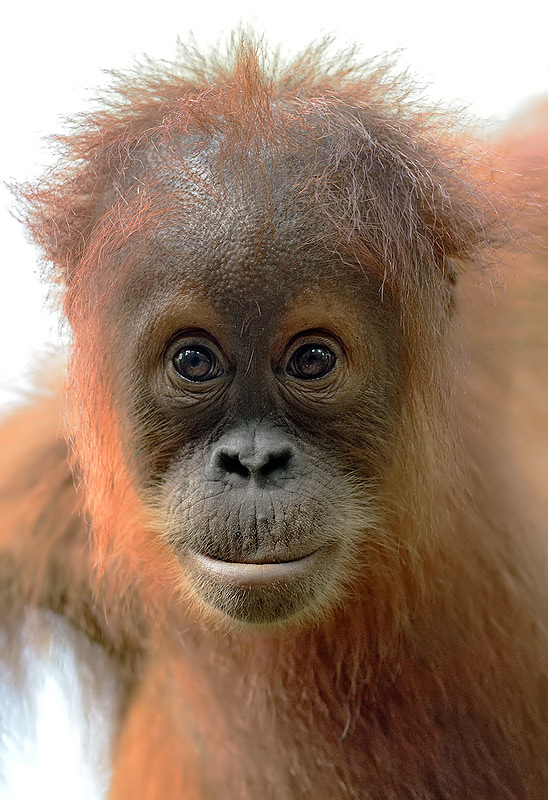

Without direct intervention in National Parks, orangutans along with all other forest-dependant species like the Sumatran Tigers and Sumatran Elephants will become progressively scarcer until their populations are no longer viable.
Craig jones
I have seen things during my time in Sumatra that have upset and angered me
Craig Jones
[Pictured] A forest is destroyed in so-called “protected” parts of Indonesia, first for timber, then for palm oil by palm oil companies that are granted permits by the government despite clear ecocide.


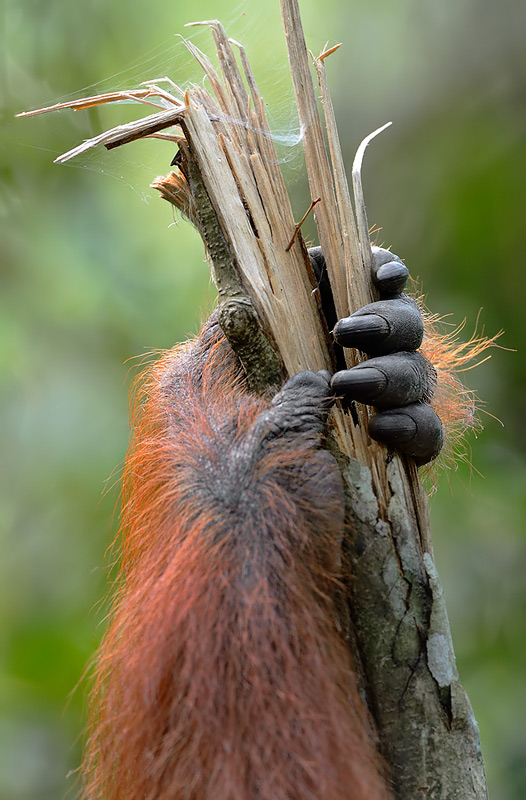
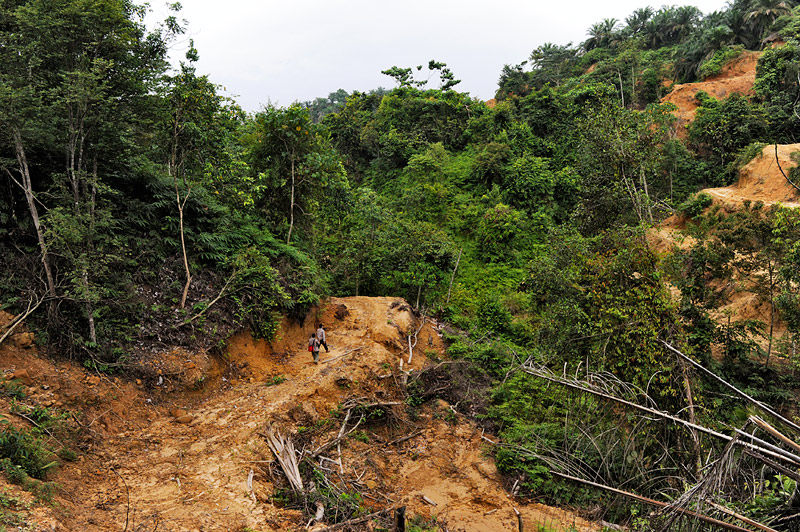


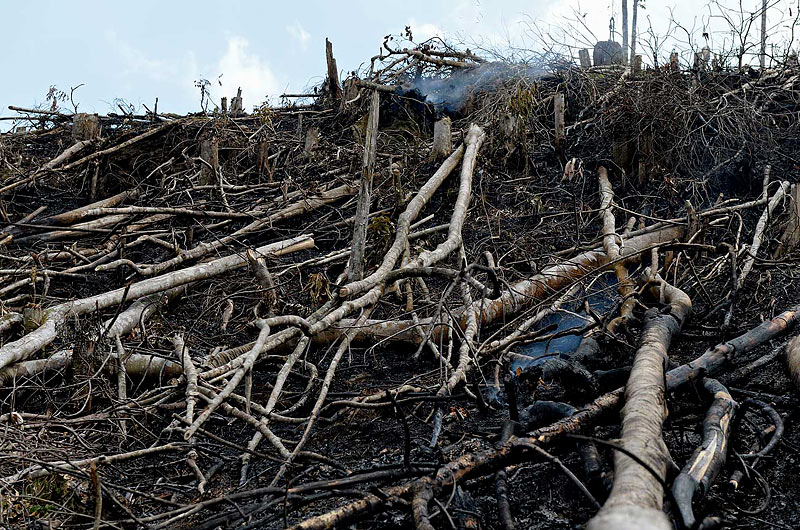
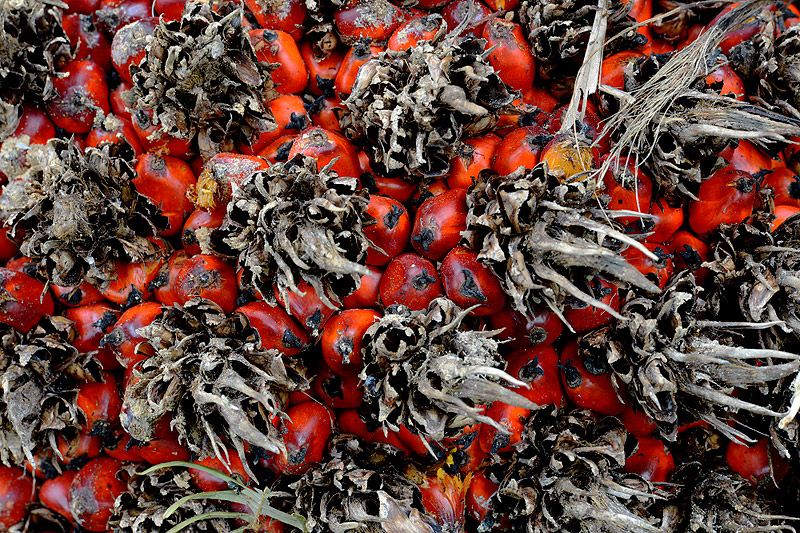
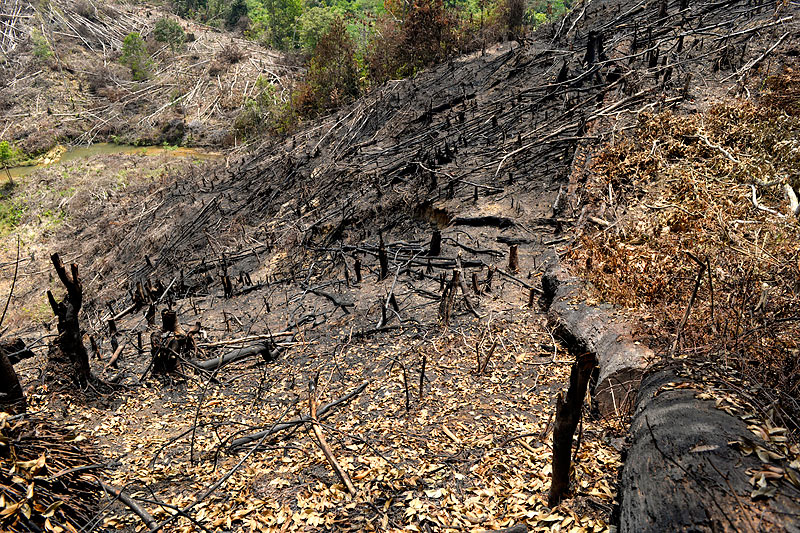
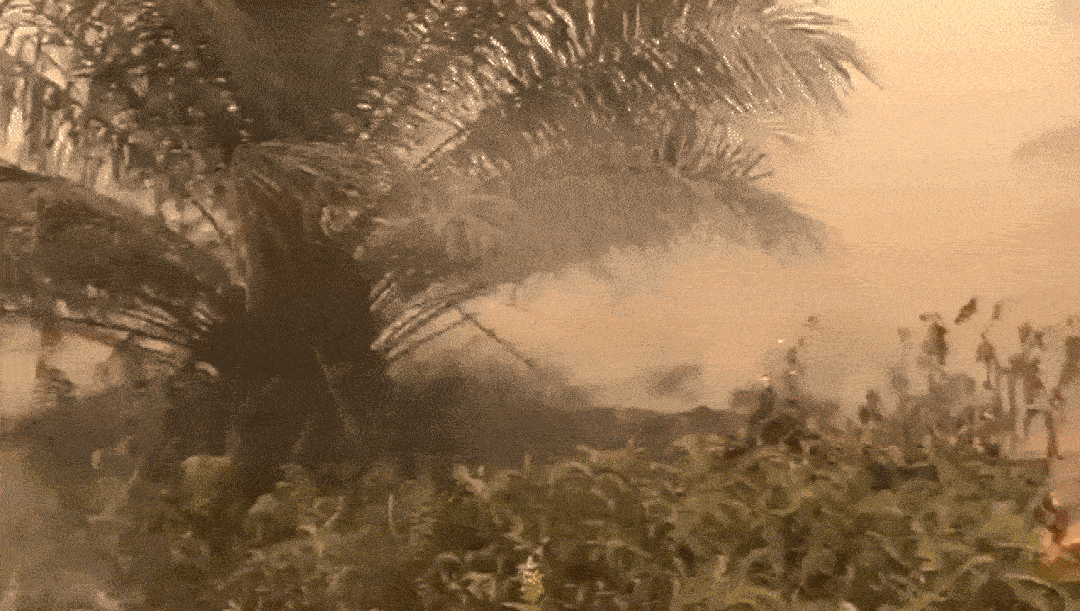
The fringes of protected rainforest habitat are slowly being eroded away with small to large de-forestation and illegal logging and forest clearance. This goes unchecked, as parts of the protected rainforest is lost each year and is shrinking at an alarming rate. There is no enforcement of regulations.
Long term initiatives like reducing corruption, massive changes in management regimes, institutional change, monitoring illegal wildlife trade and prosecuting criminal behaviour will take a long time to halt the immediate crisis.
Logging companies use bribes and are better armed and equipped than most rangers who protect the animals…
At last count when I visited there were 2,155 field rangers for a 108,000km square area. They have no access to helicopters, airplanes, arms or military patrolling skills that would enable them to prevent illegal activity.
If the rangers had the necessary training, communication, transport and arms then they’d be better placed to protect and prevent these illegal acts against the protected forests. HOCRU which stands for Human-Orangutan Conflict Response Unit are a brave group of wildlife rangers who go out every day attempting to save animals on so-called “sustainable” palm oil plantations and “protected” forests that have been destroyed.





Reducing the rate of deforestation over Indonesia as a whole will also have a dramatic impact on the regional carbon dioxide emissions and thus help to prevent dangerous levels of global climate change.
If the logging of national parks continues unchallenged it could under-mine the protected area concept worldwide.
Palm oil companies play god and play with fire in Sumatra…

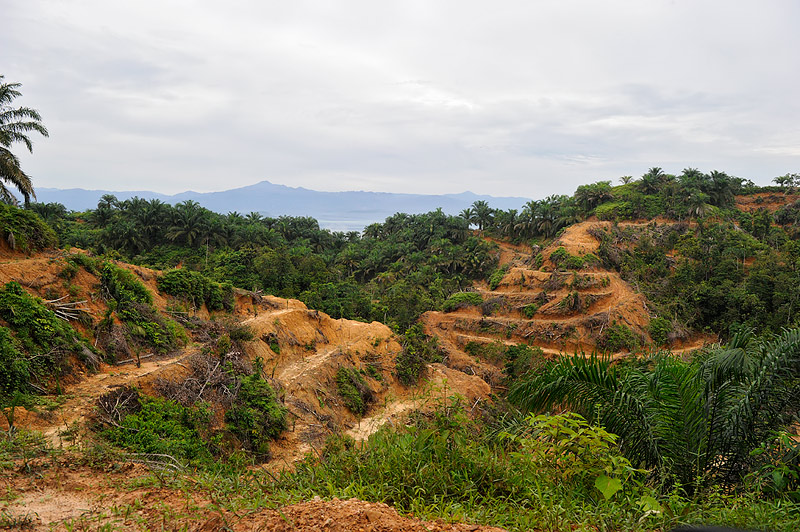
“One of the main things I kept hearing from locals was that the government fails to protect national parks, areas that contain so many endangered flagship species of wildlife. The same government that hands out licensees to palm oil companies letting them play god with some of the richest forests on earth.”
Craig jones
Sustainable palm oil is a con…
“Sustainable palm oil is a con. Palm oil is all about wealth and it’s killing us and the planet. So mother nature will have the last laugh. It’s all corruption. Those with a vested interest in this sustainable nonsense are linked in someway you mark my words because how could anyone say sustainable is OK when it’s grow in the ashes of the dead wildlife and burnt forests. This saddens me”. ~ Craig Jones
My recommendations on how you can help…


Consume less stuff overall and stop buying products containing palm oil, so this lowers demand
Move away from cheap food, cheap clothing and products that we really don’t need that have a hand in the destruction of the rainforests.
The Counterpunch: The easy consumer solutions that fight animal extinction and deforestation
Although the world is highly complex, every person can make a difference. That previous sentence almost sounds like a cliche right? Really it’s not. If every person on the planet made a few simple lifestyle changes, it would result in less demand on land and resources and soften the impact of deforestation on endangered species.…
Keep readingLook beyond so-called “sustainable” labels for palm oil and other commodities and you will see the lies, greenwashing and corruption inherent within them

Companies can’t keep taking from nature and giving nothing back!
[Pictured] Palm Oil and Pollution by Jo Frederiks
Products that destroy the environment should come with a warning label on the side, like for cigarettes. Brands should pay a levy for rainforest destruction and give something back to offset their environmental impact.


The root problem is our bad food choices and what we put into our mouths
Once we’ve made ourselves sick with palm oil-ridden junk food, drug companies pick up where the junk food left off. People then become reliant on medical interventions to keep them alive. I try to cook and eat fresh. This way I remove the majority of palm oil out of my shopping basket. There are also many companies providing toiletries without palm oil, so just shop around for palm oil free products.
We should go back to eating “fresh” and avoiding junk food, as this will help the planet but also our own health
When I was young, I always and home-cooked food. Junk food was expensive and so my mum brought fresh and cooked fresh. Nowadays, junk food has become normal and not many can cook from fresh. This is a tragedy and we need to change this.
Photography: Craig Jones
Words: Craig Jones
More by Craig…
Eyewitness by Craig Jones: A mother and baby orangutan are rescued from an RSPO palm oil plantation in Sumatra
Bio: Craig Jones One of Britain’s finest wildlife photographers, Craig Jones is also one of the most humble and down-to-earth guys you will ever meet. His photography and stories capture the lives of endangered rainforest animals that we hold so dearly to our hearts: Sumatran orangutans, Sumatran tigers, Sumatran elephants, Siamangs and more. His work has featured in BBC News, BBC Wildlife Magazine and National Geographic magazine. He has also appeared for Nat Geo WILD discussing Sumatra as part of the “Paradise Islands & Photo Ark” Nat Geo series. He has spoken at the UK Green Party Conference about the…
Read more
Join the #Boycott4Wildlife on supermarket brands causing palm oil deforestation
Contribute in five ways
1. Join the #Boycott4Wildlife on social media and subscribe to stay in the loop: Share posts from this website to your own network on Twitter, Mastadon, Instagram, Facebook and Youtube using the hashtags #Boycottpalmoil #Boycott4Wildlife.
2. Contribute stories: Academics, conservationists, scientists, indigenous rights advocates and animal rights advocates working to expose the corruption of the palm oil industry or to save animals can contribute stories to the website.
3. Supermarket sleuthing: Next time you’re in the supermarket, take photos of products containing palm oil. Share these to social media along with the hashtags to call out the greenwashing and ecocide of the brands who use palm oil. You can also take photos of palm oil free products and congratulate brands when they go palm oil free.
4. Take to the streets: Get in touch with Palm Oil Detectives to find out more.
5. Donate: Make a one-off or monthly donation to Palm Oil Detectives as a way of saying thank you and to help pay for ongoing running costs of the website and social media campaigns. Donate here


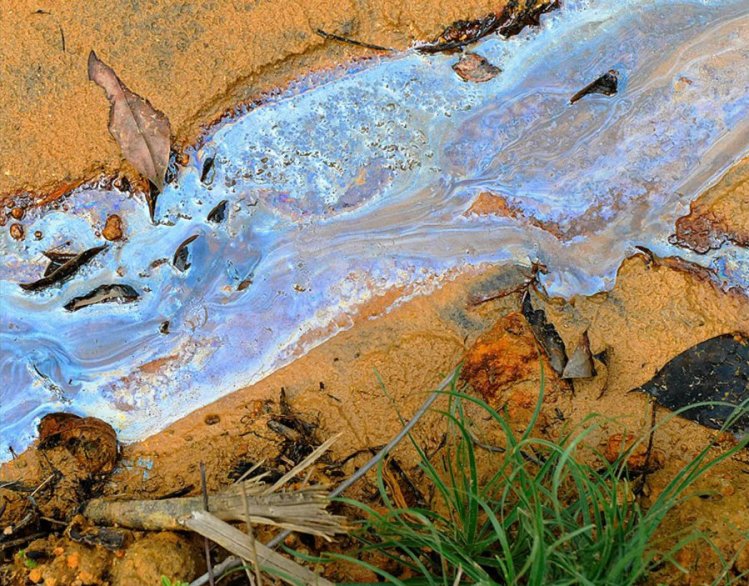
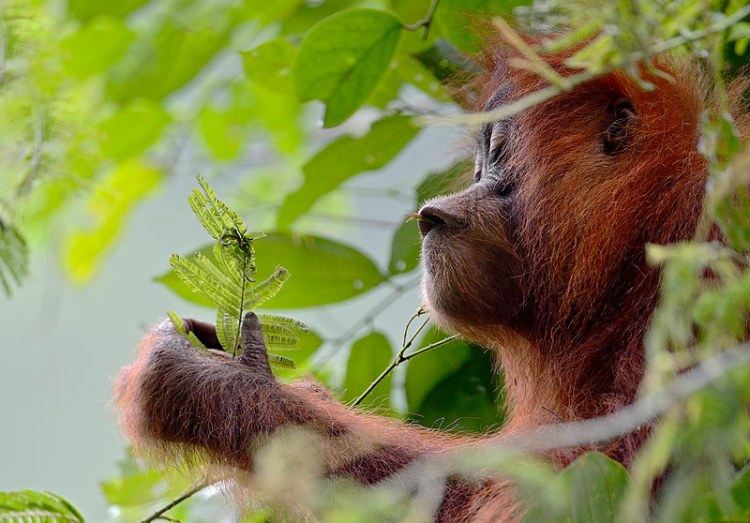
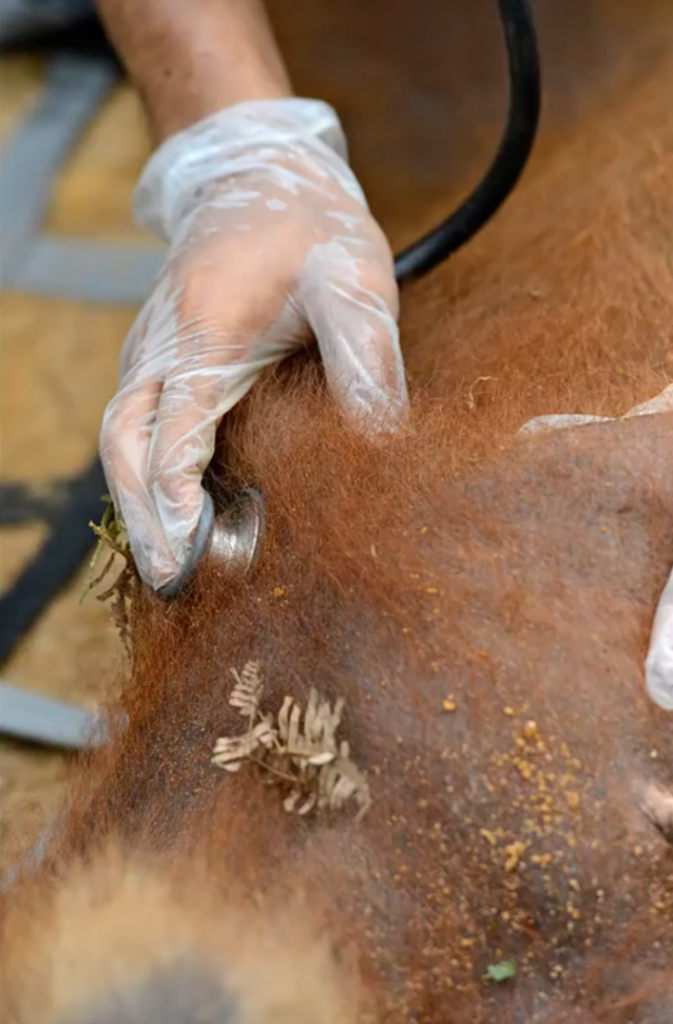
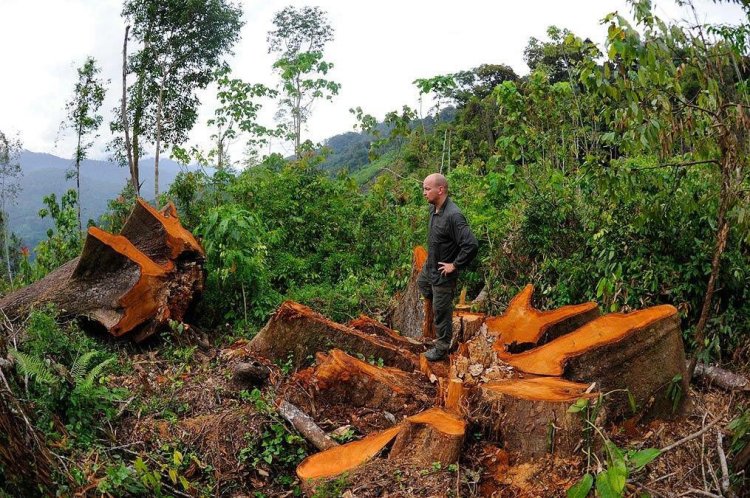
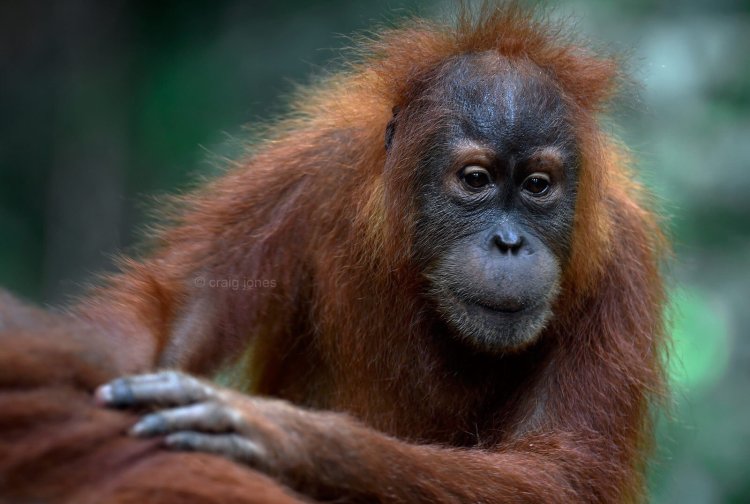
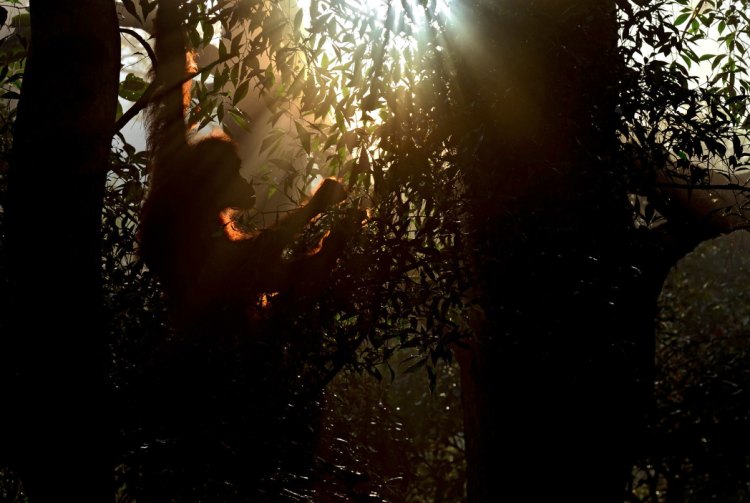
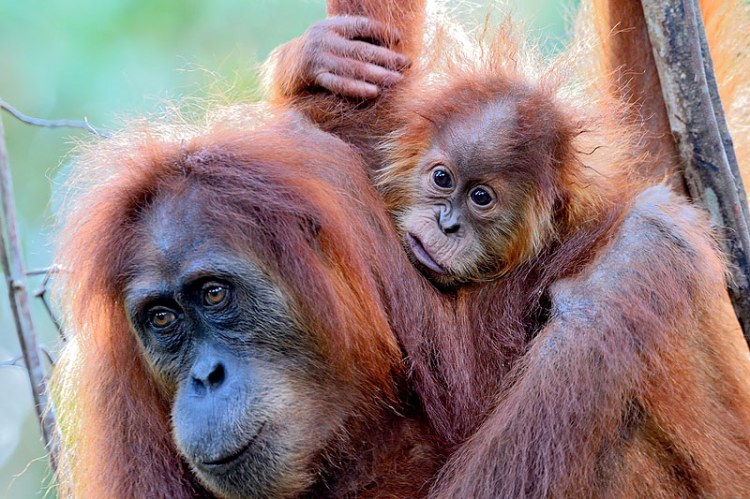
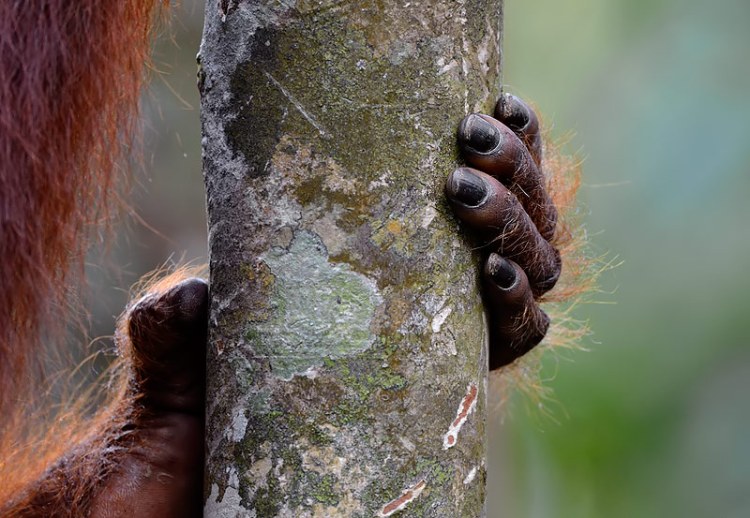
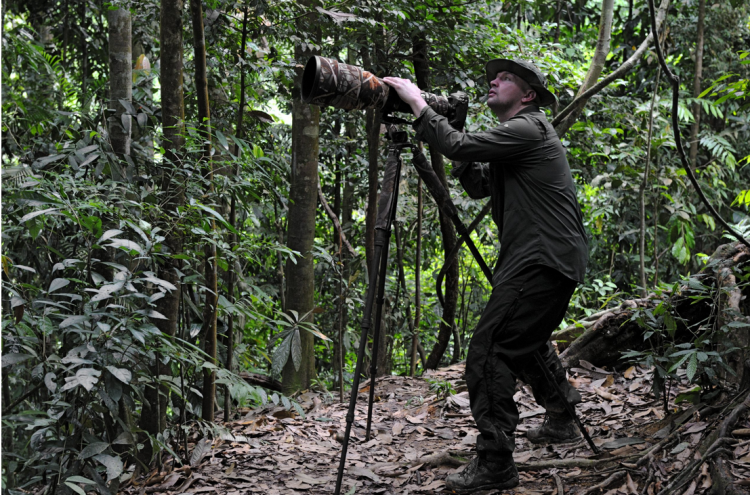
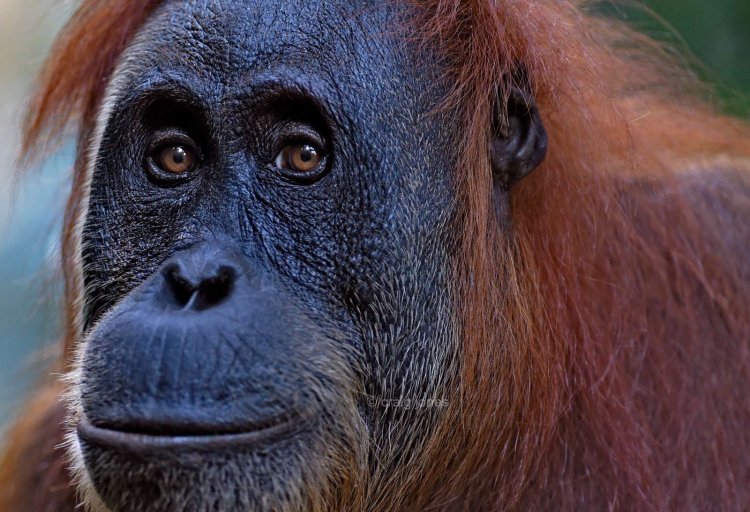








11 thoughts on “Wildlife Photographer Craig Jones: In His Own Words”